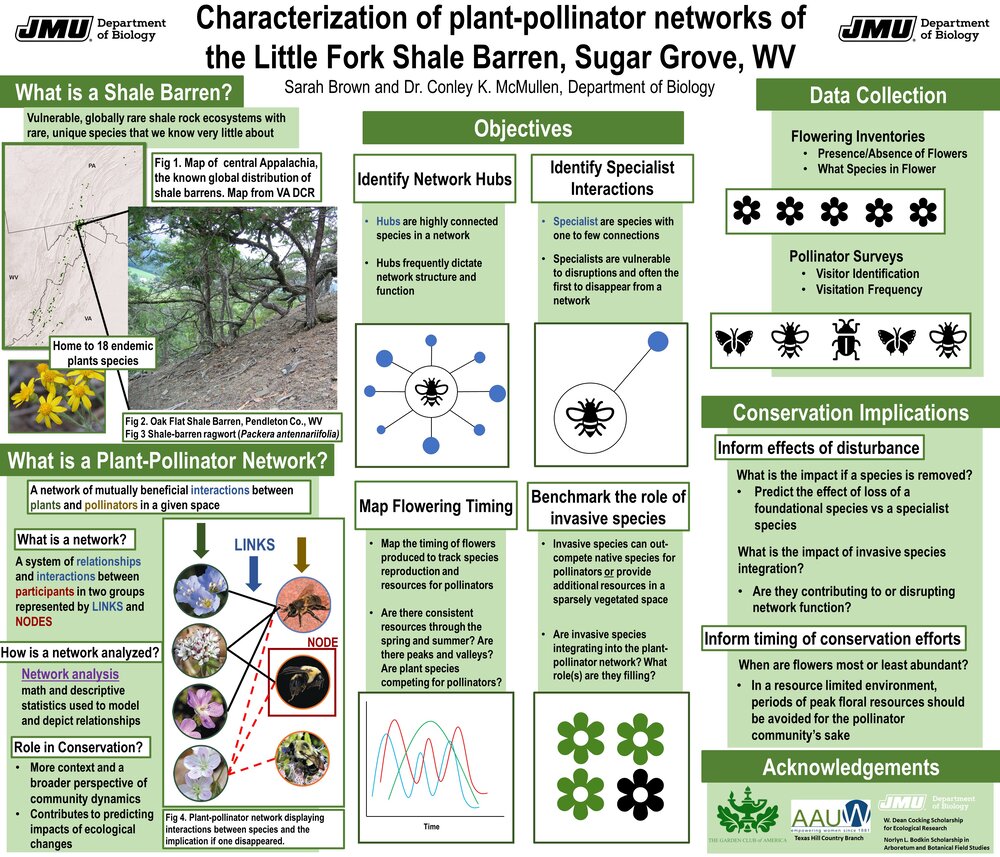Characterization of plant-pollinator networks of the Little Fork Shale Barren, Sugar Grove, WV
Biology
Advisor: Dr. Conley K. McMullen
Conservation efforts prioritize the biologically significant and/or rare. Shale barrens - a dry, rocky, globally rare ecosystem native to the mid-Appalachian Mountains - are recognized as a conservation concern. This concern for their protection is due to their rarity as well as for the number of endemic plant species found in shale barrens. They form an array of biogeographical “islands” throughout Mid-Appalachia whose evolutionary history, niche dynamics, species distribution, response to disturbance, and pollination biology remain to be investigated. Without information about their natural history, conservation efforts run the risk of not successfully protecting or even compromising the integrity of shale barrens. This project intends to address gaps in information regarding the pollination biology of shale barrens using a network analysis approach, a set of statistical techniques used to display relationships. More specifically, we aim to apply a network analysis approach to describe and characterize the plant and pollinator communities of the Little Fork Shale Barren (LFSB), a shale barren located in Pendleton County, West Virginia. By monitoring flowering activity and plant-animal interactions, we will map the trends of floral resources and outline the composition of its plant and pollinator communities. All with the objective to describe relationships between plant and animal species. Information recorded from this study will inform future conservation and management plans for the shale barren and contribute to the small pool of information surrounding such a biologically unique ecosystem.

